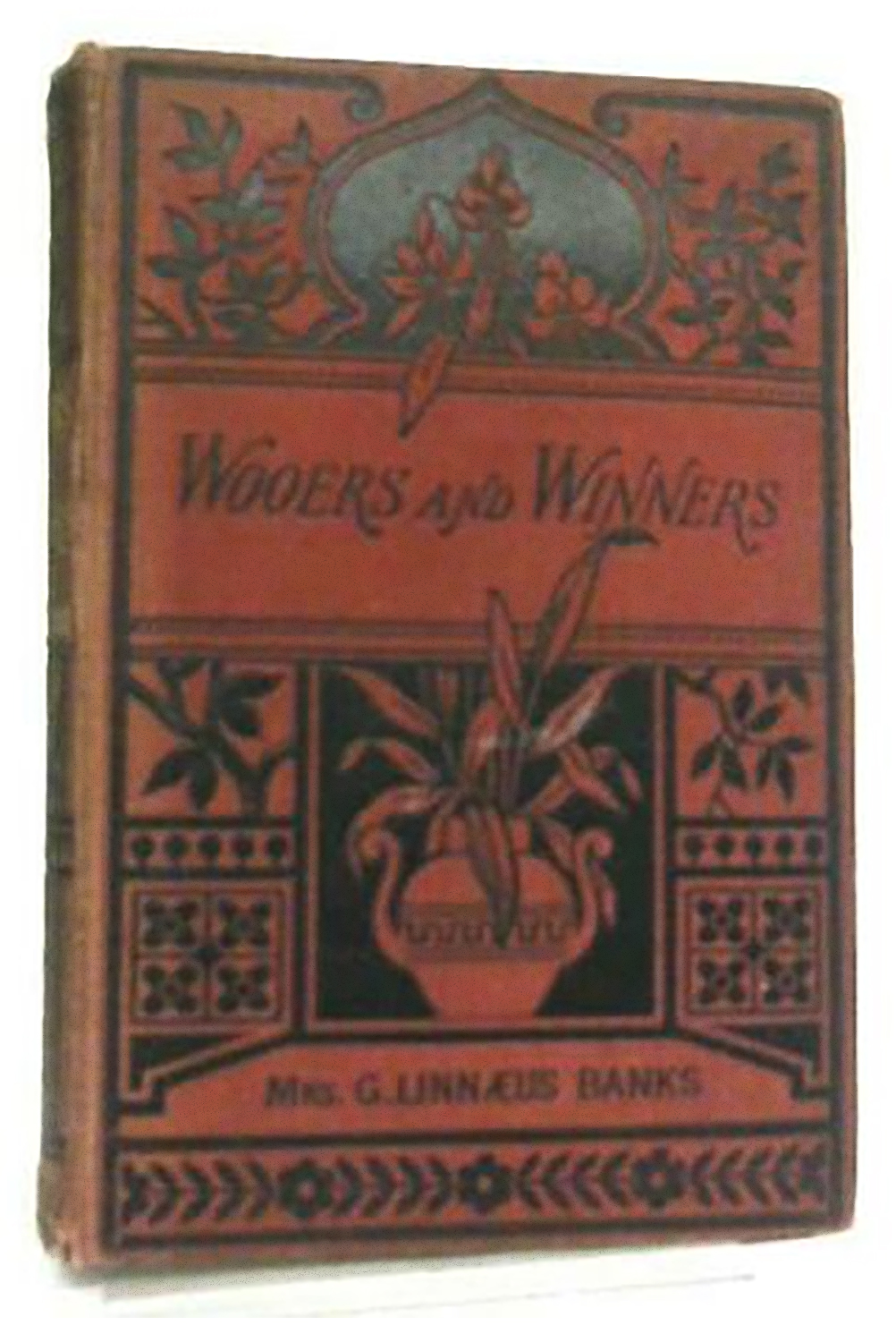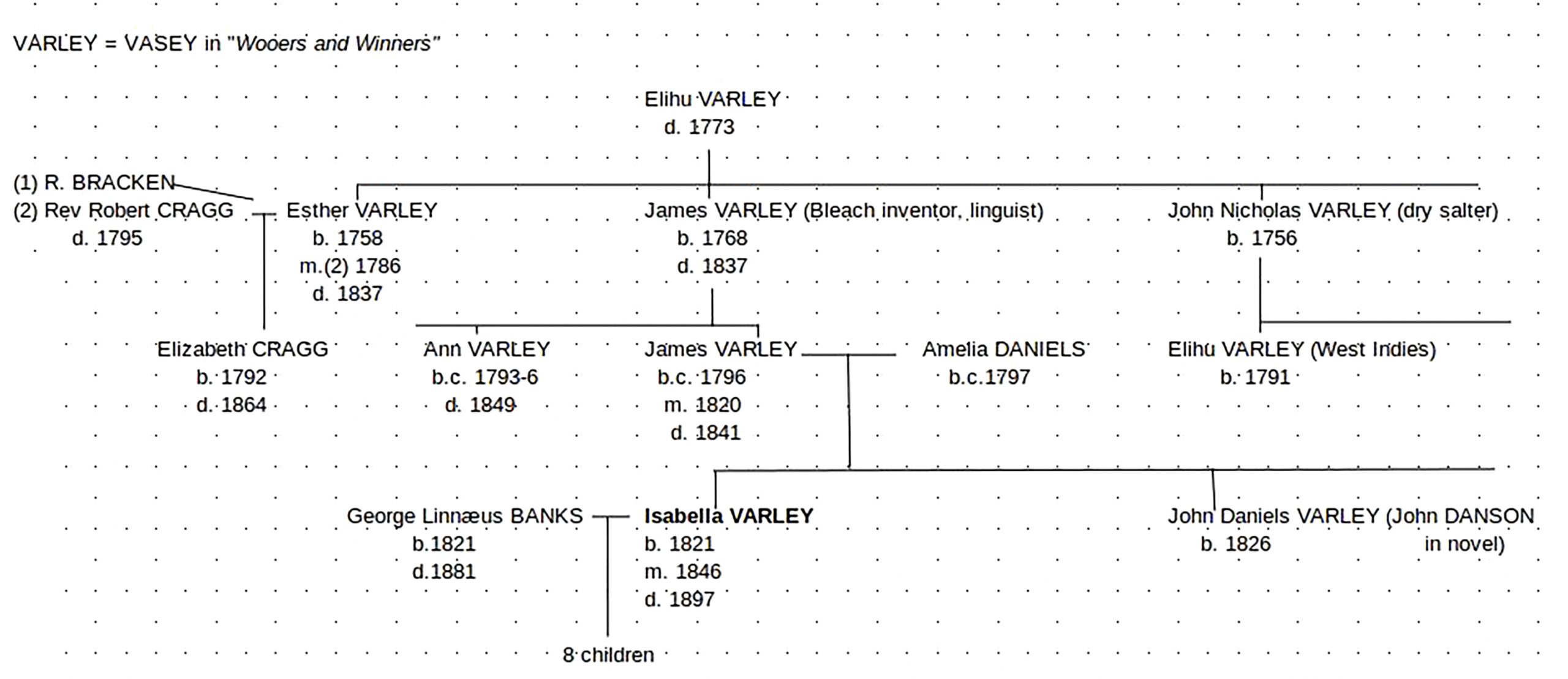Serialised fiction in the Bolton Weekly Journal - Wooers and Winners (1879) by Isabella Banks
NOTE: Isabella Banks may also appear as Mrs. George Linnæus Banks (her husband’s name), or Isabella Varley (her maiden name).
Wooers and Winners “may be safely commended to all patrons of circulating libraries” (The Examiner, 7th August 1880, p. 952) confirms the critic reviewing the serialised fiction turned three-volume published novel in The Examiner in 1880. They proclaim that Mrs. Linnæus Banks is capable of succeeding in “amusing” (p. 952) at all times – Wooers and Winners is a triumph – and the review’s lack of elaborated appraisal seems to summarise the sentiment of it entirely. The story features such an array of characters it would seem almost impossible to connect with each one individually, but the evidently extensive way the author is able to recount facts regarding Giggleswick and its surrounding areas, alongside the fact that it is set against the backdrop of a plethora of events spanning from local cholera epidemics to the emancipation of West Indian slaves drives home its authenticity and realism – by its close the reader is well aware that this novel is based on the real life events of real life people.
Perhaps then we may regard the review by The Examiner’s critic as undervaluing in its brevity – where they see “no great sensational excitement” (pg. 952) in the story of school-age children, we may alternatively regard and appreciate a deep understanding of human life in a misrepresented portion of society. Without overtly denouncing the novel, they seem to condemn the lack of “melodrama” (p. 952) by proclaiming that, despite its apparent mundaneness, it is “still” (p. 952) readable. Banks’s extensive knowledge of the area in which she set Wooers and Winners is impressive, and renders the book in the present day a historical artefact; she eloquently but intrinsically displays a knowledge of her cultural and geographical heritage transferred generationally. Banks plucks excerpts from her own family history and allows the novel to absorb them as its own, taking the unknown biographies of her ancestors and projecting them into a more modern setting, allowing for further, well-deserved, appreciation.

We could infer that while the critic is evidently only permitted a handful of lines to summarise a whole novel, they ultimately fail to encapsulate the sheer effort and generations of personal, familial antiquity that was instilled in its production by Banks. Following a reading of her ancestral history here, it may be evident why it was initially titled Under the Scars – in my view it may have more profound an impact if left as such.
Bibliography
Anon. (1880) ‘Wooers and Winners’. Examiner (3784), pp. 952.
Banks, G. Linnaeus. (1970). The Manchester Man. London: Victor Gollancz.
elizabethgaskellhouse.co.uk. (2021) The Manchester Woman – Mrs G Linnaeus Banks – elizabethgaskellhouse.co.uk. [Online] Available at: https://elizabethgaskellhouse.co.uk/the-manchester-woman-mrs-g-linnaeus-banks/ [Accessed 17 April 2021].
Encyclopedia.com. (n.d.) Banks, Isabella (1821–1887) | Encyclopedia.com. [Online] Available at: https://www.encyclopedia.com/women/encyclopedias-almanacs-transcripts-and-maps/banks-isabella-1821-1887 [Accessed 17 April 2021].
Slater, M. (n.d.) More fact than fantasy: a literary glimpse into Giggleswick’s past. [Online] Northcravenheritage.org.uk. Available at: http://www.northcravenheritage.org.uk/NCHTJ2018/2018/MoreFact/WandWBanks.html [Accessed 17 April 2021].











